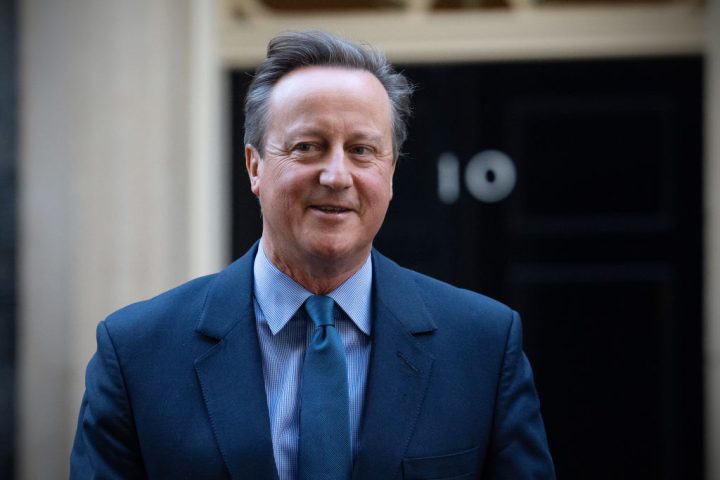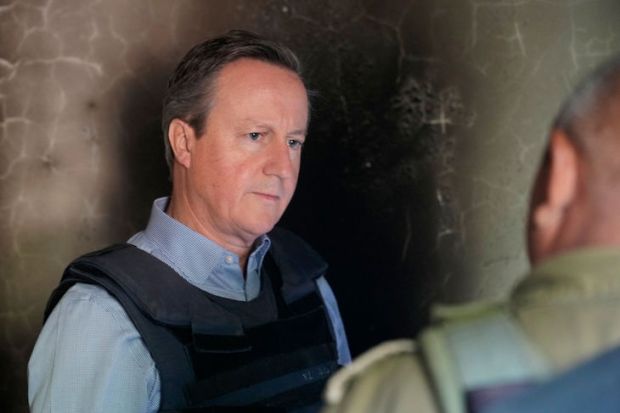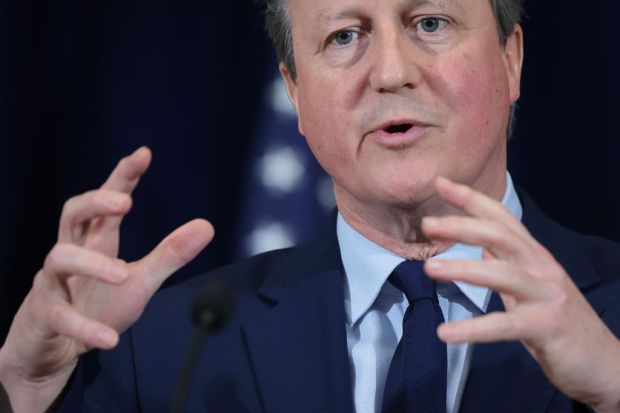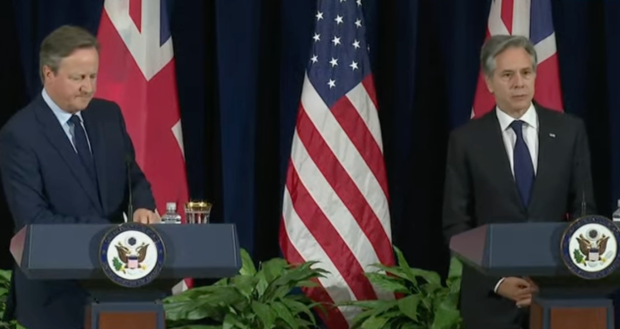British politics is a brutal and unsentimental place when it comes to departing prime ministers. After a few valedictory remarks at the despatch box and the odd tearful farewell, the PM heads off to Buckingham Palace to tender their formal resignation to the monarch. And that’s that – apart from the customary arrival of the Downing Street removal vans to clear away their belongings.
It is an unspoken rule that no one, most of all their successors in Downing Street, is particularly keen to welcome a former prime minister back to frontline politics. That is why David Cameron’s return to government as Foreign Secretary is such a shock. It is just not the done thing.
Sunak and Cameron have turned conventional Westminster thinking on its head – in a good way
Cameron, who led the country between 2010 and 2016, has been resurrected from the ranks of the politically undead in Rishi Sunak’s cabinet reshuffle. It’s a development so seismic and unexpected that it has overshadowed everything else, even the sacking of Suella Braverman.
In the process, Sunak and Cameron have turned conventional Westminster thinking on its head – in a good way. After all, what exactly is there to celebrate about some unspoken convention that former leaders of the country do not serve in government again? Why is it the done thing to wilfully ignore the political experience and talents of someone who has reached the highest office in the land? It is a curiously self-defeating idea, even more so at a time when there is such a dearth of talent on the benches in Westminster.
It would have been far easier for Cameron to refuse the offer. That would have been the expected thing to do. Former leaders of the country are seen as too grand to serve in the cabinet of one of their successors.
All kinds of nonsense is trotted out to justify or explain this act of political pique. The former leader will overshadow the serving prime minister; his or her opinion might carry undue weight with colleagues, and there will be an irresistible temptation to intervene in matters outside their departmental brief.
This is a tired school of thought that treats Westminster and government as a political playground for non-stop competition and rivalry. Is it really beyond the realms of possibility that Cameron might actually surprise his many critics and make a good Foreign Secretary at a time of international crisis?
I’m not saying he will. Nor do I agree with those who claim this is a political masterstroke on the part of Sunak. It is more like a last desperate last roll of the dice from a dying administration.
Even so, that does not necessarily mean that Cameron himself will be a failure in his new role. He may even go on to prove that he has learnt some lessons from his previous high profile failures of judgment in the foreign policy arena – including his naive pivot towards China and his decision to go all in with the French in intervening in Libya in 2011. At the very least, Cameron’s voice around the cabinet table could be more of a help than hindrance to Sunak, who lacks high level experience in international affairs.
Cameron’s decision to return is welcome for other reasons. It should bring to an end the notion that former leaders of the country do not – and should not – return to frontline politics. This was not always the case. Cameron follows in the footsteps of another ex-PM, Alec Douglas-Home, who was made Foreign Secretary under Edward Heath in 1970. Douglas-Home, an aristocrat, had previously served for just under a year as PM between 1963 and 1964. Arthur Balfour, who was PM from 1902 until 1905, became Foreign Secretary in 1916. He stayed in post for three years.
The country now has several living former prime ministers – John Major, Tony Blair, Gordon Brown, David Cameron, Theresa May, Boris Johnson and Liz Truss – all kicking their heels in various ways. Can some of their political talents not be used in ways that benefit the country? Must every ex-leader be left to carp from the political sidelines? It is a wanton act of national self-harm.
Not all possess the courage or humility to play second fiddle to their successors in Downing Street, but perhaps Cameron’s return will prompt a wider change of heart. A lot is riding on what he makes of his second chance on the front line of politics.
Got something to add? Join the discussion and comment below.
Get 10 issues for just $10
Subscribe to The Spectator Australia today for the next 10 magazine issues, plus full online access, for just $10.




















Comments
Don't miss out
Join the conversation with other Spectator Australia readers. Subscribe to leave a comment.
SUBSCRIBEAlready a subscriber? Log in